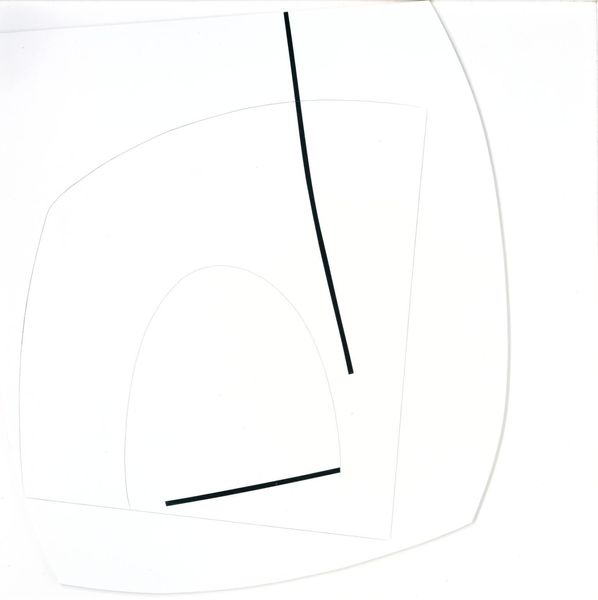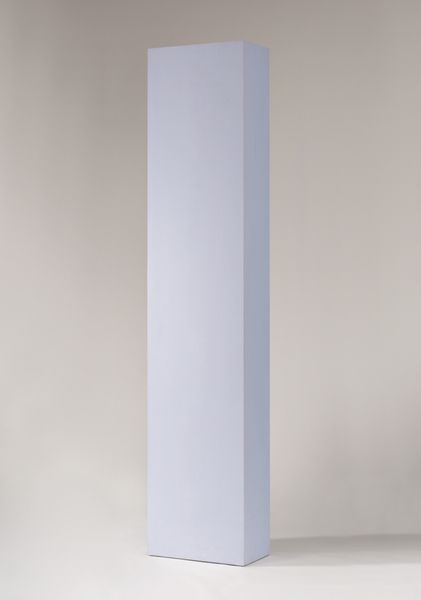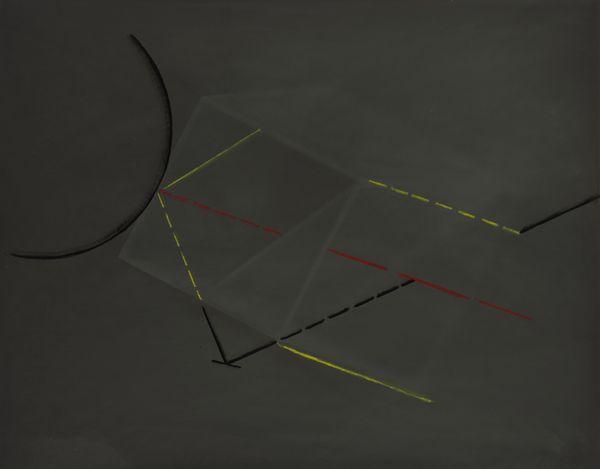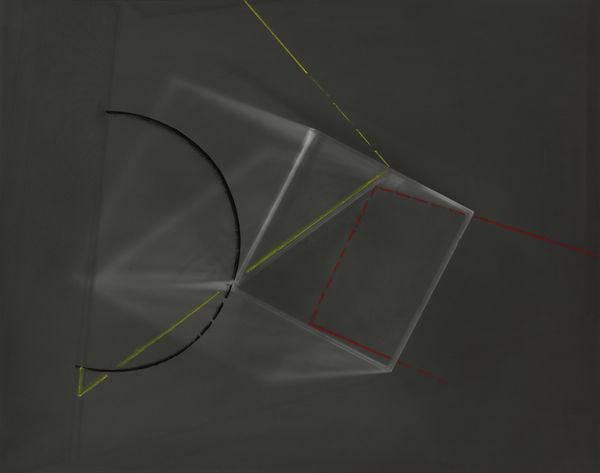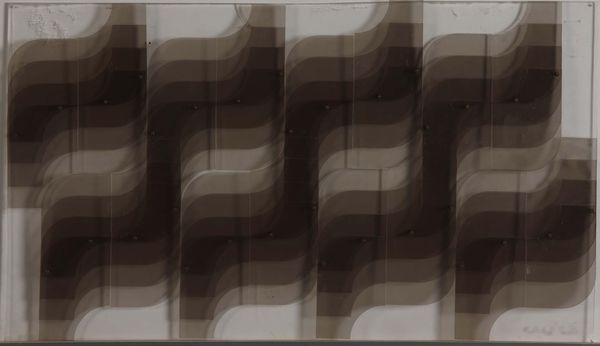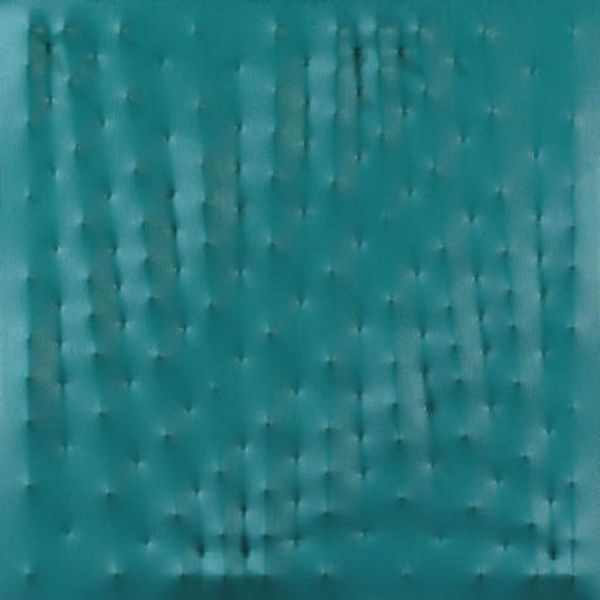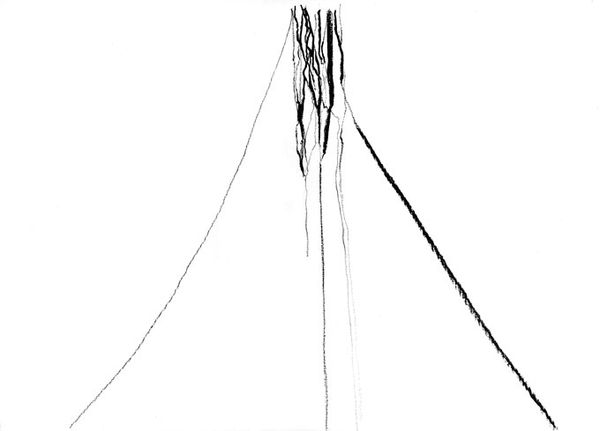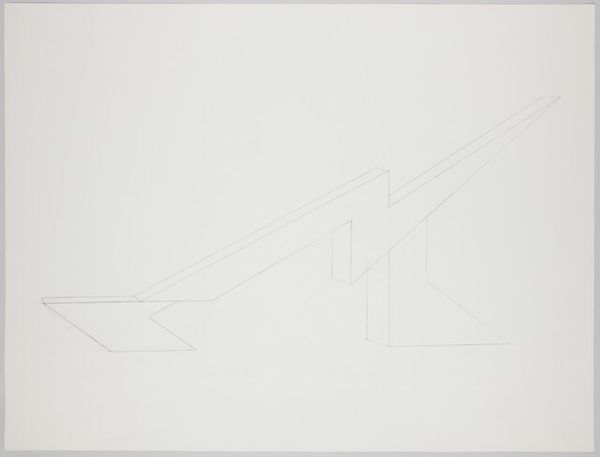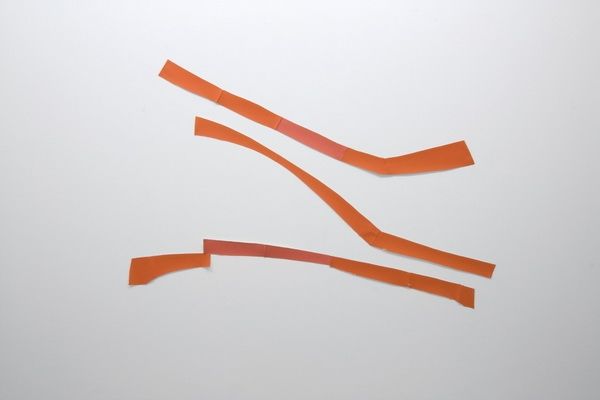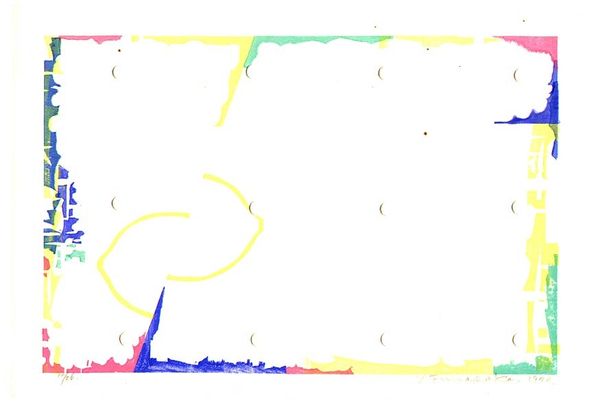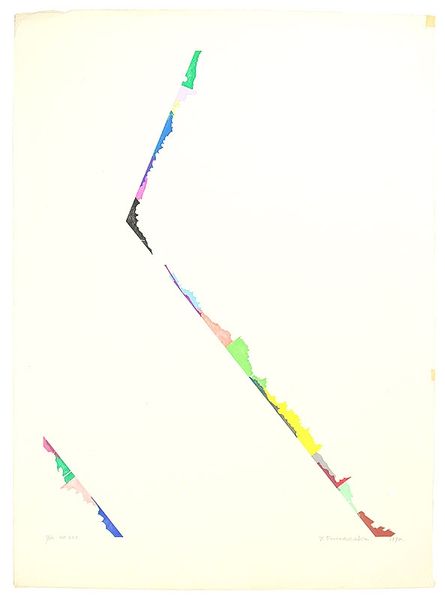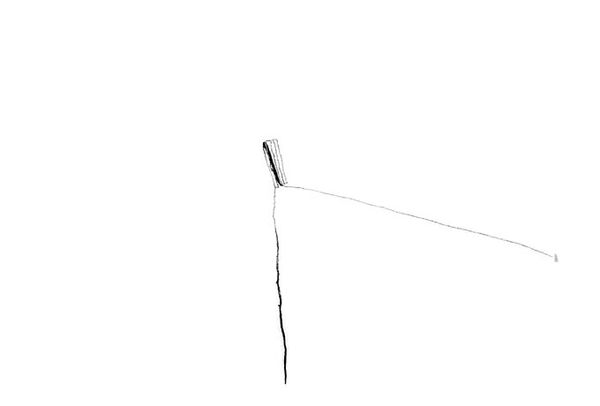
#
geometric
#
abstraction
#
line
Copyright: Guy Mees,Fair Use
Curator: Here we have Guy Mees’ work, "Lost Space," created in 1990. It strikes me immediately as an exercise in deconstruction, abandoning traditional composition. What are your initial thoughts? Editor: It's strikingly minimal, isn't it? The use of muted blues against the stark white background gives it a fragile, almost ephemeral quality. Like these are strips of sky caught adrift. Curator: Indeed. And I think the materiality is central here. We see simple strips, potentially paper or fabric, which disrupts any sense of preciousness or hierarchy. Mees seems interested in elevating the commonplace. The lack of elaborate technique also challenges the notion of art as requiring specialized skill. Editor: Right. And viewed through the lens of art history, this kind of dematerialization speaks to a larger trend in the late 20th century. Artists increasingly questioned the object-status of art, shifting focus to the idea or concept. Museums, then, had to wrestle with exhibiting these ephemeral works. How do you present something so...un-present? Curator: Precisely. "Lost Space" becomes an almost defiant gesture. Mees seems to deliberately create something easily disposable, forcing us to consider the institutional framework that attempts to validate and preserve art. It reminds us that taste is not simply accidental, but that these decisions happen within cultural contexts. Editor: And thinking about public engagement, an artwork like this has the potential to be divisive. Is it "art" or just discarded scraps? How do museums educate audiences to look beyond traditional notions of beauty and skill? What politics influence its place here? Curator: Ultimately, Mees provokes us to question value—both aesthetic and monetary. "Lost Space" transforms everyday materials into objects worthy of consideration. I wonder if visitors can begin to look differently at objects, as components or materials of a possible artwork. Editor: And from a historical point of view, Mees encourages us to interrogate the institutions that bestow artistic value. Curator: Well put, perhaps it allows us to reconsider the status of images around us as well, even those as ubiquitous as strips of colored paper. Editor: Yes, quite. Thank you.
Comments
No comments
Be the first to comment and join the conversation on the ultimate creative platform.
